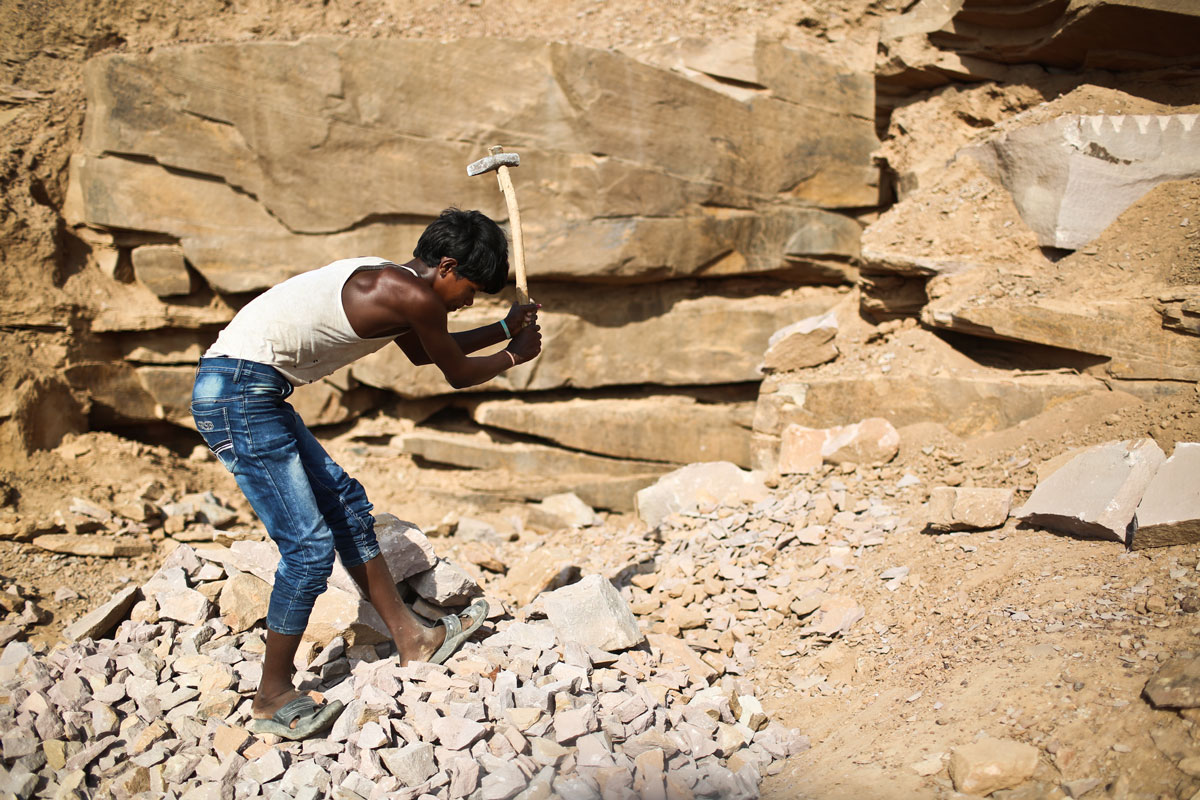Welcome to the Slavery Research Bulletin, the Freedom Fund’s monthly brief designed to bring you new and compelling research from the global anti-slavery movement.
Links between institutional care and child trafficking
A report by Lumos explores how institutional care systems can be both a driver of child trafficking and a destination for children who have survived human trafficking. Based on a literature review and interviews, the report highlights that 5.4 million children around the world live in institutions, including in so-called orphanages where on average 80 percent of the children are not orphans. Recommendations include stricter monitoring of institutional care providers by local authorities and greater consideration of community care settings.
Exploitative labour practices at the Expo 2020 Dubai
An investigation by Equidem exposes exploitative labour practices associated with the Expo 2020 Dubai and accuses the United Arab Emirates of failing to protect migrate workers’ rights. Drawing on 69 interviews with migrant workers from 11 different countries, the study found that 83 percent had paid illegal recruitment fees or did not receive their salary on time, 37 percent reported three or more incidents which are indicatives of forced labour, and 20 percent reported five or more.
Assessing efforts to combat forced labour in high-risk industries
KnowTheChain publishes key findings from a five-year assessment of efforts by companies in high-risk sectors to combat forced labour in their supply chains. Following a review of 129 companies across the technology, food and beverage, and apparel and footwear sectors, four out of five companies provided no evidence of adopting responsible purchasing practices to protect human rights. This glacial progress signals the ineffectiveness of voluntary efforts and points to a greater need for laws and regulations to drive corporate actions.
Digital technology to promote fair recruitment
The International Labour Organization sheds a light on the potential use of digital technology to enable more transparent labour recruitment and prevent exploitative employment practices. Drawing on data from 370 migrant workers from Nepal, Philippines and Sri Lanka, the study found high levels of internet access, however many of the migrant workers did not use or trust online sources and instead favoured migration advice from family, friends and recruitment agents.
Girls working in Nepal’s adult entertainment sector
Researchers at the City University of New York, with funding from the Freedom Fund, report on the prevalence of girls aged 17 and younger working in adult entertainment venues in Kathmandu, Nepal. Based on a probabilistic sample of 600 workers, the study estimates that 17 percent of the female workers were minors, or approximately 1,650 girls at the time of the fieldwork in 2018. Nearly all (99 percent) of these girls were working in conditions that amounted to the worst forms of child labour, including exposure to sexual exploitation and physical violence.
Read on…
- The Justice Research and Statistics Association highlights four characteristics in online escort advertisements that were strongly predictive of sex trafficking.
- The International Trade Union Confederation reports on the exploitation of Palestinian workers, many of whom reported arbitrary deductions and withholding of wages.
- Researchers at the University of Notre Dame examine the trafficking experience and health needs of African American male sex workers in the United States.
And finally…
The Freedom Fund announces our first round of grants to survivor-led organisations under the Survivor Leadership Fund. Read here.
Contact us
Our team would love to hear from you. Please email: [email protected].
News & updates
For more news and updates about the Freedom Fund, visit our Newsroom. You can also view archived issues of our bulletin here.



